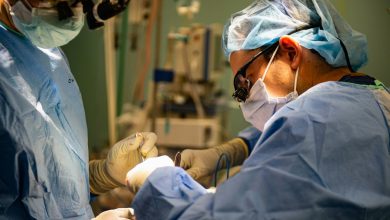
It happens, and suddenly, nothing feels normal.
You’re frustrated. Maybe a little embarrassed. Maybe more than a little. But you say nothing. You wait, hoping it’s a one-off that fixes itself.
Erectile dysfunction (ED) is common, but no one tells you what it feels like when it happens. That silence? That’s part of the problem. Because ED isn’t just about sex, it’s often your body’s way of trying to tell you something.
According to Peakerect, over 300 million men are expected to experience ED by 2025, yet the condition is still misunderstood and often dismissed.
This article examines the causes of ED, the available treatment options, and what science indicates are effective and what are not.
The good news? There are real, effective ways to treat it backed by science, not guesswork.
What Is Erectile Dysfunction?
ED means you can’t get or keep an erection firm enough for sex. It may occur once or repeatedly, and it can have a significant impact on both physical and mental aspects.
Around 1 in 3 men experience ED. It’s more common with age, but it can affect anyone. Sometimes it’s short-term. Sometimes, it’s a sign of something more profound.
Occasional difficulty is normal, especially during periods of high stress or poor sleep. But when it occurs regularly for three months or more, doctors may diagnose it as ED.
You might wonder: Is it stress? Fatigue? Or something more? That uncertainty is fundamental, and so is the science behind it.
What’s Going On?
An erection depends on blood flow, nerves, hormones, and mental focus. If any of those falter, ED can happen.
Common causes include heart problems, diabetes, low testosterone, mental health challenges, or habits like smoking and poor sleep.
Often, it’s a combination. And in some cases, ED is the first sign of a more serious issue like heart disease or early diabetes.
Studies suggest that men with diabetes are two to three times more likely to experience ED, and the condition often develops earlier. Cardiovascular disease is another significant risk factor, as restricted blood flow directly affects erectile function.
Some medications, including antidepressants and drugs for high blood pressure, can also contribute to erectile problems, making it essential to review current prescriptions with a healthcare provider.
What Can You Do About It?
A single factor doesn’t cause ED, and there’s no one-size-fits-all solution. The most effective treatment depends on the cause. Here’s what current evidence supports:
1. Oral Medications
Drugs like Viagra (sildenafil) and Cialis (tadalafil) increase blood flow and are often the first, easy-to-try option. Clinical studies show they can be highly effective for many men, though they don’t work for everyone.
2. Lifestyle Changes
Exercise, better sleep, a balanced diet, and quitting smoking can improve blood flow and hormone balance, supporting long-term health.
3. Therapy
ED is often mental as well as physical. CBT or sex therapy can reduce anxiety and help rebuild confidence.
4. Medical Devices
Vacuum erection devices (VEDs) use suction to draw blood into the penis. They’re drug-free and effective for many men.
5. Hormone Therapy
If tests confirm low testosterone, hormone treatment may help, but only with proper diagnosis.
6. Surgery
In severe, unresponsive cases, penile implants offer a lasting, reversible option.
Explore each option in more detail on Eroxon’s ED treatment guide.
What About Natural Remedies?
Ginseng, L-arginine, and yohimbine promise a lot. But most supplements lack strong clinical support. Some perform no better than a placebo, and others can interact with medications or worsen health issues. Talk to your doctor first; the risks may outweigh the benefits.
According to the Mayo Clinic, some over-the-counter products that claim to treat ED can be harmful, containing unlisted pharmaceutical ingredients or substances that interact with other medications. The FDA has issued multiple warnings about “natural” sexual enhancement supplements that were found to contain undeclared drug compounds, including sildenafil.
Final Thoughts
ED can feel isolating, but it’s incredibly common. More importantly, it’s treatable.
Some effective options and professionals can help. Taking action, whether it’s scheduling an appointment, getting tested, or simply learning more, is a strong first step toward change.
This isn’t just about sex. It’s about confidence, connection, and long-term health.
Addressing ED isn’t just about restoring function; it’s about improving overall health, identifying risk factors early, and taking control of your well-being. It’s a conversation worth having, and one that begins with science, trust, and a genuine willingness to take your health seriously.



